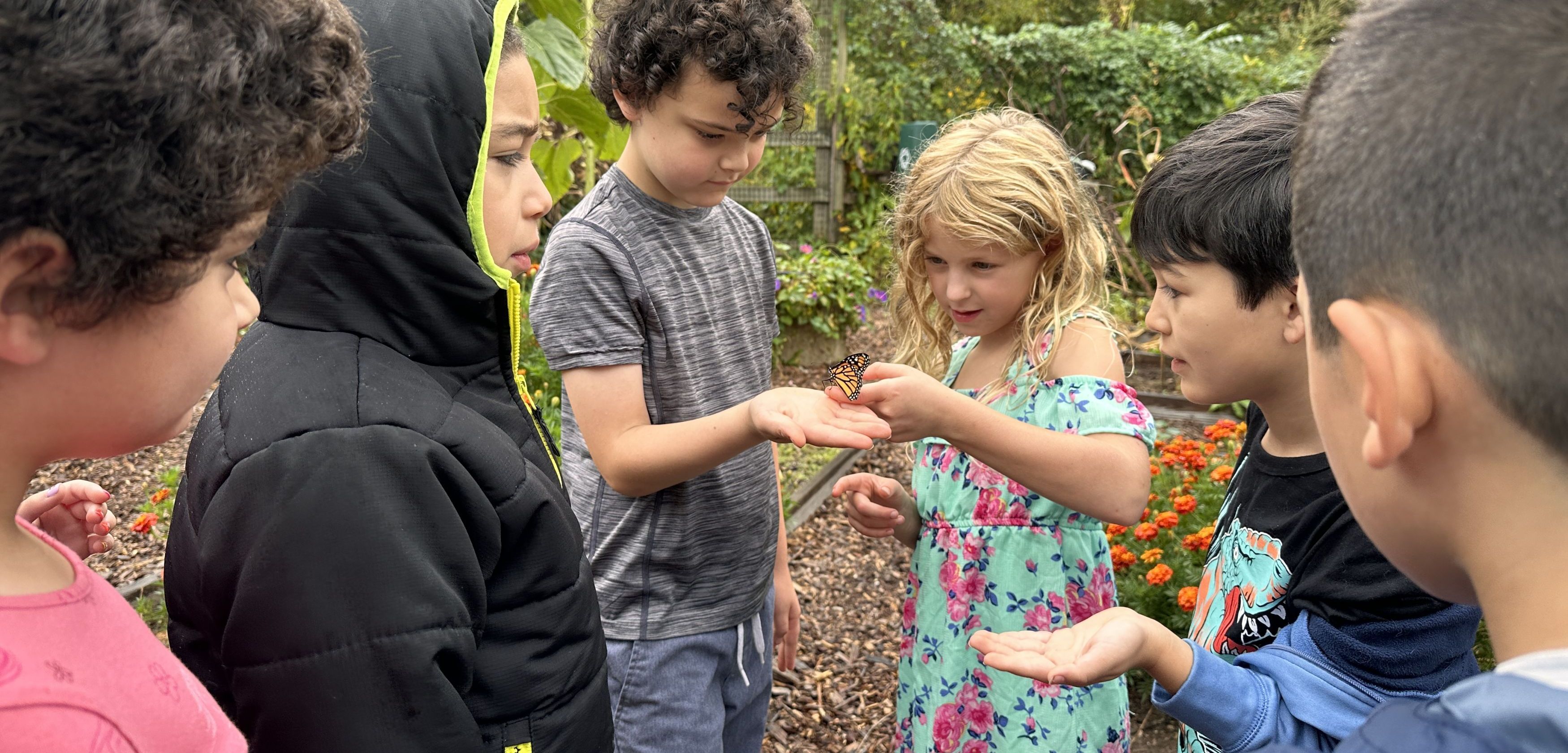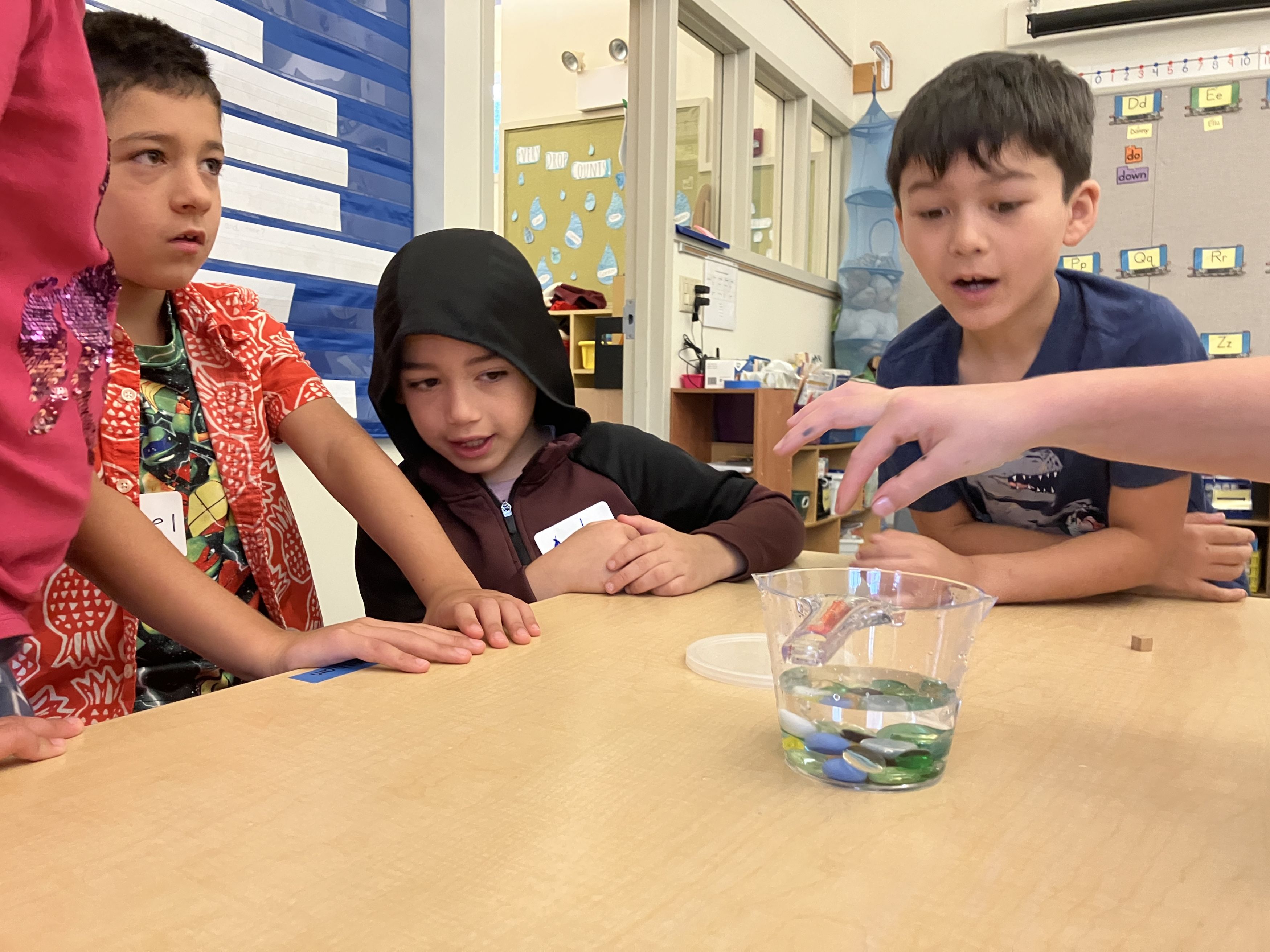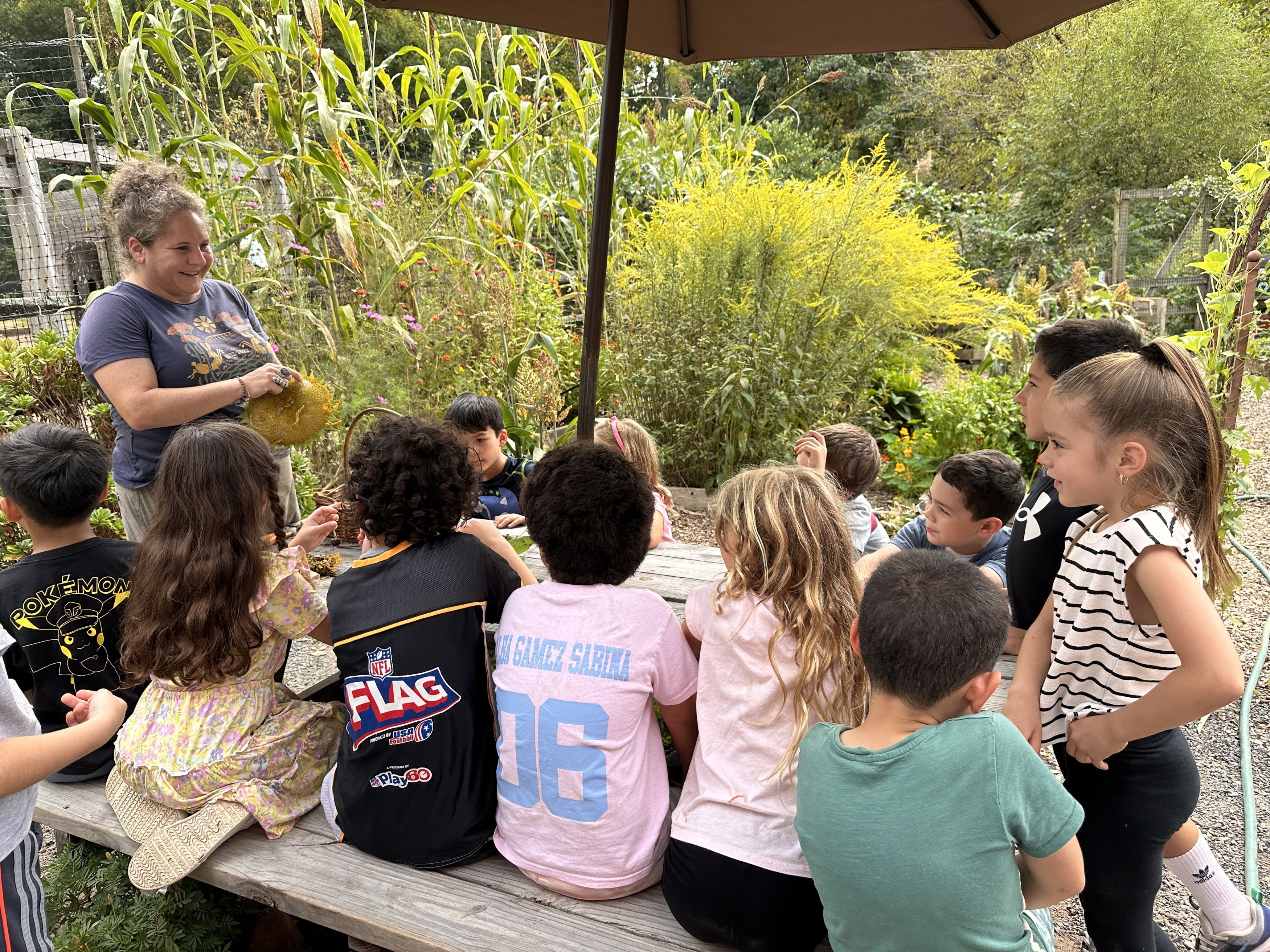Spanish Program
The Spanish program at PFS follows the ACTFL World-Readiness Standards, emphasizing Communication, Culture, Connections, Comparisons, and Communities. This dynamic, project-based program provides students with a broad cultural and linguistic foundation, exploring the diverse Spanish-speaking regions of the world.
Students learn about the 21 Spanish-speaking countries, their capitals, and geographic locations, with a special focus on the Caribbean and Spain. Through songs, games, crafts, role-playing, and presentations, students actively engage with the language in meaningful and creative ways. Each unit of study immerses students in the history, geography, arts, and traditions of a Spanish-speaking country. Students read and analyze short novels set in countries like Cuba, Ecuador, Mexico, and Argentina, delivering presentations on characters, food, geography, and cultural traditions.
The program also fosters a global and intercultural perspective. Recent projects have included:
- Food migration studies, where sixth-graders created a bulletin board illustrating the food exchange between the Americas and Europe.
- The history and ethics of chocolate were explored by eighth-grade students, who researched its origins, commerce, and justice issues before presenting their findings to other grades.
Throughout the year, students interact with authentic cultural materials, such as videos, infographics, current events, and traditional artifacts. Special events enrich the experience, including:
Día de los Muertos Presentations: Middle school students research and share the meaning and symbolism of the holiday through altar decorations and community presentations.
Storytelling Week: Students read, memorize, and perform stories in Spanish, bringing language learning to life.
Poetry Season: A celebration of Latin American poetry, where students engage in wordplay, explore poetic traditions, and memorize short poems.
With a focus on hands-on learning and cultural engagement, the Spanish program at PFS provides students with an enriching and immersive experience, preparing them to be global citizens with a deep appreciation for the Spanish language and its diverse cultures.
Lower Grades Spanish Program at PFS
At PFS, the Lower Grades Spanish Program provides young learners with an engaging and immersive introduction to the Spanish language. While early language acquisition offers cognitive benefits, it also fosters social and cultural awareness, helping students develop an appreciation for diverse traditions.
Students begin their Spanish journey through listening, observing, and interacting with new phrases in a natural and playful way. The program incorporates songs, games, dialogues, and movement-based activities, inspired by Latin American traditions.
Key learning topics include:
- Greetings and everyday expressions
- Traditional Latin American songs
- Seasons and colors
- Animals and Nature vocabulary
- Short poems and storytelling
Cultural celebrations are an essential part of the program. In September and October, students explore Hispanic Heritage, learning about the people, music, and traditions that shape Spanish-speaking cultures. In November, they celebrate Día de los Muertos, discovering the meaning behind this special tradition through age-appropriate activities.
Chinese Program
The Chinese language program at Princeton Friends School is based on Quaker values and is committed to creating a diverse and vibrant learning community. The curriculum is based on the ACFEL (Academic, Cultural, Functional, Emotional, and Linguistic) framework to enhance students' academic ability, cultural understanding, practical skills, emotional cognition, and language ability. In the Chinese language program for grades PK-8, we focus on developing students' language ability, cultural understanding, and cross-cultural communication skills. The curriculum not only covers basic language skills (listening, speaking, reading, and writing), but also incorporates traditional Chinese cultural elements such as festival customs, calligraphy, painting, traditional music, and dance. Through these activities, students will discover and express their own voices and talents.
1st and 2nd Grade
The Chinese curriculum for grades 1 and 2 focuses on cultivating students' interest in learning and curiosity. The weekly Chinese class aims to create a pleasant learning environment for students and inspire their love for the Chinese language and culture. The course content covers topics such as dates, seasons, weather, food, animals, plants, etc., and is rooted in our interdisciplinary Central Study theme to deepen learning of Chinese in a diverse context. Through Chinese songs, dialogues, and role-playing, students learn to make simple expressions in Chinese and gradually build language confidence. At the same time, picture books, Chinese character cards and fun activities are used to help students recognize simple Chinese characters and learn to write basic strokes and stroke order. In addition, the course incorporates rich cultural elements, such as traditional festival celebrations, handicrafts, and storytelling, to help students gain a preliminary understanding of the diversity and uniqueness of Chinese culture.




